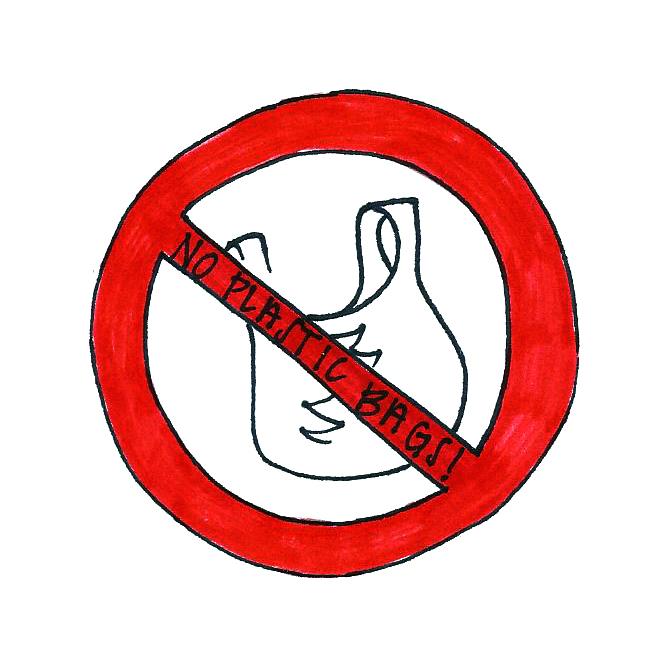Polymer-based sins: banning plastic bags
Recently, there has been much debate over the banning of plastic bags. It is estimated that Americans use about 100 billion plastic bags every year according to an article by mprnews.org. Although plastic bags are recyclable, a vast majority of them end up in landfills or on streets and beaches.
“I feel that banning plastic bags will be beneficial because it will reduce the amount of plastic in the environment and won’t harm animals,” junior Anthony Beckett said.
According to an article by mprnews.org, a statewide ban on plastic bags was passed in California last year, but was delayed until 2016 because of a statewide referendum. Plastic bags are currently recycled, which can help reduce the amount of plastic in the environment, but it has been said to clog sorting machinery.
“If plastic bags get banned, it could harm businesses because they might rely on plastic because it is cheaper to use than paper,” junior Pedro Ortega said.
A study by the U.S. Environmental Protection Agency showed that 68% of sea turtles have eaten a piece of plastic in the ocean, including plastic bags. A 2009 study revealed that plastic bags account for about 8.5% of trash in the Mediterranean Sea, either found in bodies of water or beachside. The banning of plastic bags could decrease those percentages as well as keep animals safe from any harm.
“It could help prevent animals from swallowing any plastic bags which could choke them and keep the ocean safe for the animals,” Ortega said.
Although scientists have not reached a consensus, they generally estimate that it takes 500 to 1000 years for plastic bags to degrade in a landfill. The banning of plastic bags could prevent landfills from being overfilled and having more be built because of the long duration of the plastic bags being degraded.
“Banning plastic bags could help the trash industry since there could be more space to fill in other trash instead of having the majority of it be filled with plastic bags,” Ortega said.
Your donation will support the student journalists of Woodbridge High School. Your contribution will allow us to purchase equipment and cover our annual website hosting costs.







